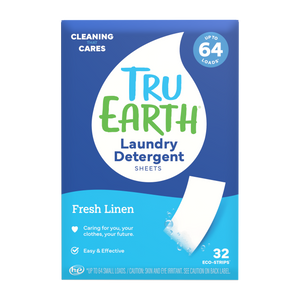Drying your clothes in a dryer is a convenient way to get that warm, toasty feeling out of your laundry, but it comes with its share of downsides. Sure, it saves you time, especially when the weather is less than cooperative, but it can also be hard on your clothes, your wallet, and even the environment.
In this article, we'll explore the disadvantages of relying solely on your dryer to dry your clothes and discover how making a few changes in your laundry routine can lead to a more efficient, cost-effective, and eco-friendly way to keep your clothes dry.

The Toll on Your Clothing
One of the most significant disadvantages of using a dryer is the toll it takes on your clothes. The constant tumbling and exposure to high heat can cause your fabrics to wear out faster.
Your favorite T-shirts might fade, and the elasticity in your undergarments could deteriorate. Over time, this can lead to a shorter lifespan for your clothing items, meaning you'll need to replace them more frequently.
The Energy Bill Blues
Using a dryer consumes a considerable amount of energy, which can translate into a hefty electricity bill. Dryers rely on electric or gas heating elements to generate the heat needed to dry your clothes.
This energy-intensive process can significantly increase your monthly utility costs, especially if you're using your dryer for every load of laundry. In the long run, it's not just your clothes that pay the price; your wallet takes a hit too.
Environmental Impact
Beyond the strain on your wallet, the environmental cost of using a dryer is a significant concern. Producing the electricity or gas needed to power dryers often involves burning fossil fuels, which release harmful greenhouse gasses into the atmosphere.
These emissions contribute to climate change and its far-reaching consequences. So, every time you toss your clothes in the dryer, you're unwittingly contributing to environmental problems.
Shrinkage and Fabric Damage
Your dryer's high heat can cause certain fabrics to shrink or warp. Natural fibers like cotton and wool are particularly susceptible to this.
Additionally, the constant tumbling action can lead to pilling, a condition where fabric fibers break and form tiny, unsightly balls on your clothes. Nobody wants to put on a favorite sweater only to find it's now a size too small or covered in little pills.
Lint Buildup and Fire Hazard
Lint, those fluffy bits of fabric that collect in your dryer's filter, is more than just an annoyance. It's also a potential fire hazard. When lint accumulates in your dryer's filter or vent, it restricts airflow, causing the machine to work harder and heat up more.
This increased heat, combined with the highly flammable nature of lint, can lead to dryer fires. Regularly cleaning your dryer's lint filter and vent is crucial to prevent this risk.
Noise Pollution
Dryers can be noisy beasts. The constant spinning and humming can be disruptive, especially if you have a laundry room close to your living spaces or bedrooms. This noise pollution can disturb your peace and quiet, making it less than ideal for a relaxing evening at home.
Limited Space for Air Drying
Another drawback of relying solely on your dryer is the limited space for air drying delicate or oversized items. Certain fabrics, like silk or lace, should never see the inside of a dryer. Likewise, larger items such as comforters or rugs may not fit. Without alternative drying methods, you might find yourself with damp and damaged items.
Tru Earth's Eco-Friendly Alternative
Fortunately, there's a greener, more economical way to dry your clothes while avoiding many of these disadvantages - and it involves Tru Earth's laundry detergent strips.
These eco-friendly strips are designed to work efficiently in both cold and hot water, meaning you can wash your clothes in lower temperatures, reducing your energy consumption. But the magic doesn't stop there. Tru Earth's strips also eliminate the need for liquid or powder detergent, reducing packaging waste and lowering your environmental footprint.
When paired with air drying, you can further reduce your energy consumption and prolong the life of your clothes, all while contributing to a healthier planet. So, next time you think about drying your clothes in a dryer, consider the benefits of Tru Earth's laundry detergent strips and air drying to save both your clothes and the environment.

Closing Remarks: Evaluating the Downsides of Clothes Dryer Usage
While dryers offer undeniable convenience, it's essential to recognize their disadvantages. From accelerated clothing wear and tear to environmental concerns and energy costs, the drawbacks are evident.
By incorporating air drying into your laundry routine and making eco-friendly choices like using Tru Earth's laundry detergent strips, you can mitigate these disadvantages and take steps toward a more sustainable and cost-effective laundry routine. So, as you weigh your options, remember that a little extra time and care can go a long way in preserving your clothes, your finances, and our planet.

